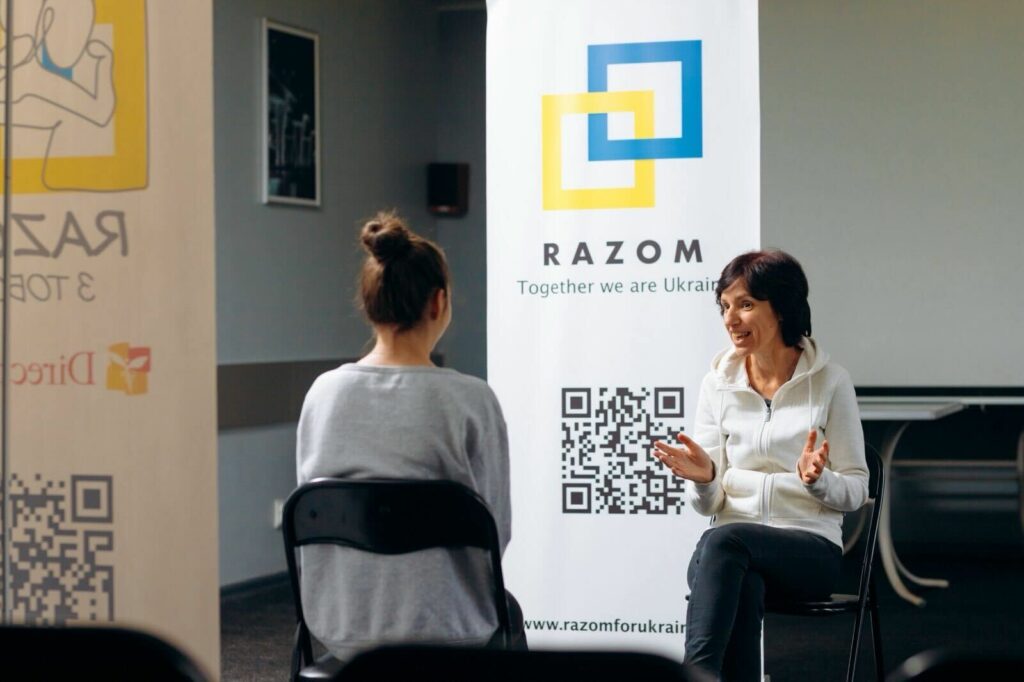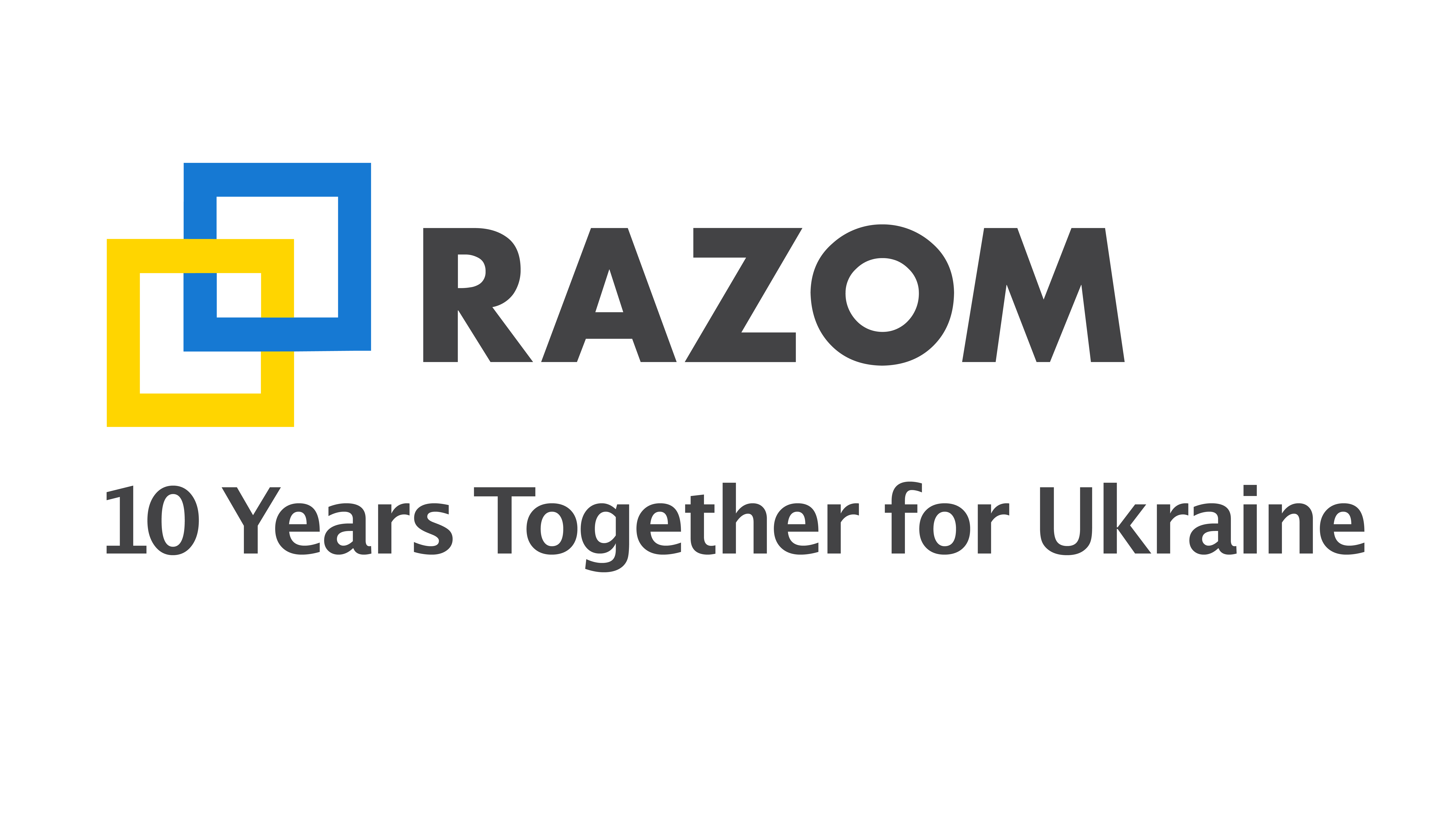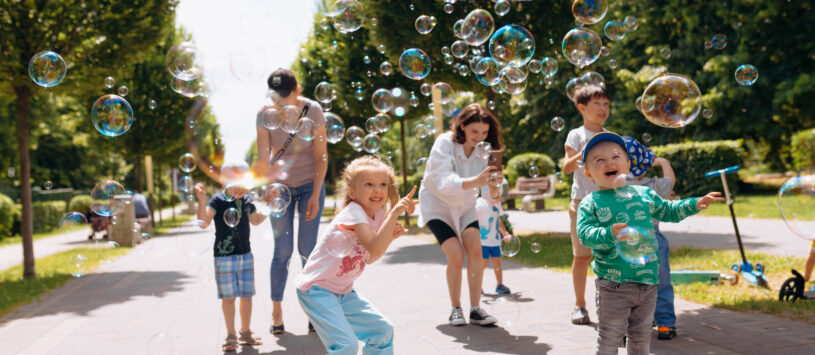Today, October 10, marks World Mental Health Day, a timely reminder of the importance of mental well-being, especially for those affected by war. In Ukraine, where the trauma of war has deeply impacted millions, the Razom z Toboyu (Razom with You) program is offering critical psychological support to children, adolescents, and adults.

For this Mental Health Day, we had the opportunity to interview Iryna Gudyma, Razom z Toboyu (RzT) Project Manager, who reflected on the project’s mission:
1. Can you describe the mission and goals of the Razom z Toboyu project and how it addresses the mental health needs of Ukrainians affected by war?
Razom z Toboyu was born out of the urgent need to support Ukrainians grappling with the psychological toll of war. Since the launch in July 2022, we have conducted over 18,000 individual sessions and over 2,500 hours of group work.
Recent statistics suggest a deepening mental health crisis in Ukraine, exacerbated by ongoing war. Reports indicate that the number of Ukrainians seeking mental health support has surged, with 77% experiencing stress or severe nervousness and 40% feeling the need for psychological help in the past six months, according to Gradus. Furthermore, a study published in The Lancet found that 54% of Ukrainians, including refugees, are suffering from PTSD. The war has led to a staggering increase in antidepressant sales, which have jumped nearly 50% since 2021 (Ukrainian Ministry of Health).
We aim to provide accessible, high-quality psychological support to those affected by the war, whether they’re internally displaced, veterans, or families who’ve lost loved ones.
Our key goals are multifaceted. We work to prevent the development of long-term mental health disorders, particularly PTSD, among those experiencing war trauma. We look to stabilize people’s emotional states and help them tap into their inner resources for resilience.
Importantly, we’re also focused on building capacity within Ukraine’s mental health system by training professionals in trauma-informed care and developing innovative support programs.
What drives us is the belief that mental health care is crucial not just for individual well-being, but for Ukraine’s collective recovery and future. We’re committed to breaking down the stigma around seeking help and making mental health support a normalized, integral part of the country’s post-war healing process.
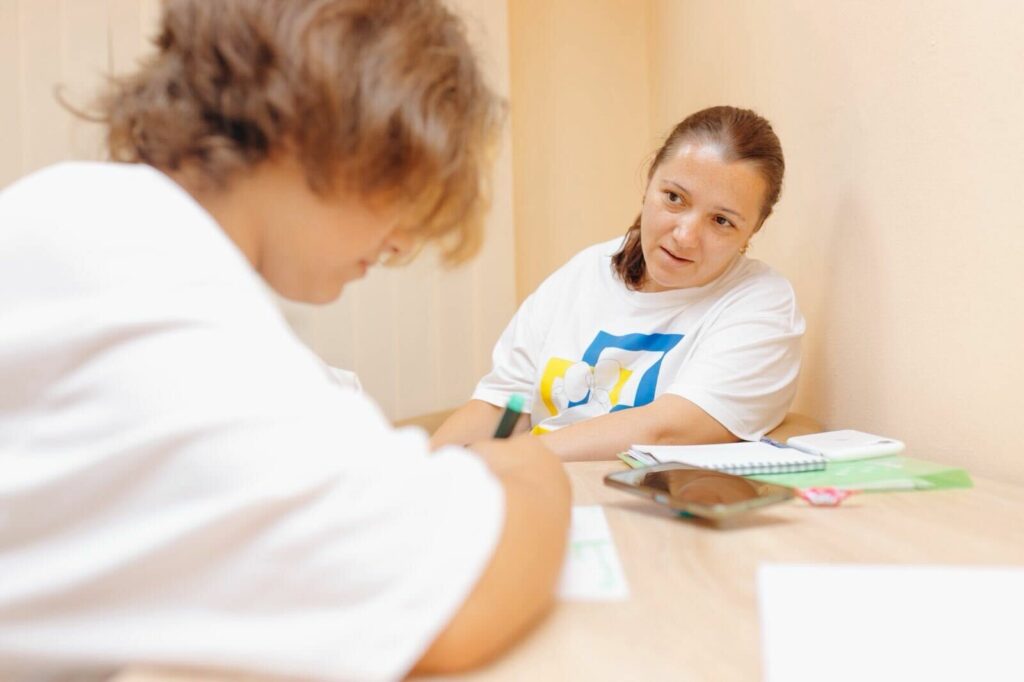
2. What specific services or resources does RZT provide to support mental health, and how have these been received by the community?
We offer a range of services tailored to the diverse needs we’re seeing. This includes individual counseling, group therapy sessions aimed at posttraumatic growth, specialized training for special groups including social workers, medical professionals, teachers, etc. We’ve also developed psychoeducation workshops to help people understand trauma responses and learn coping strategies.
The response from communities has been overwhelmingly positive as evidenced by an anonymous survey of over 450 participants who received support. For instance, 95% reported establishing a trusting relationship with their psychologist, while 74% noticed improvements in their emotional well-being. Impressively, 85% felt that their psychologist helped them cope with their specific issues, and all participants indicated they would recommend the “Razom z Toboyu” project to others.
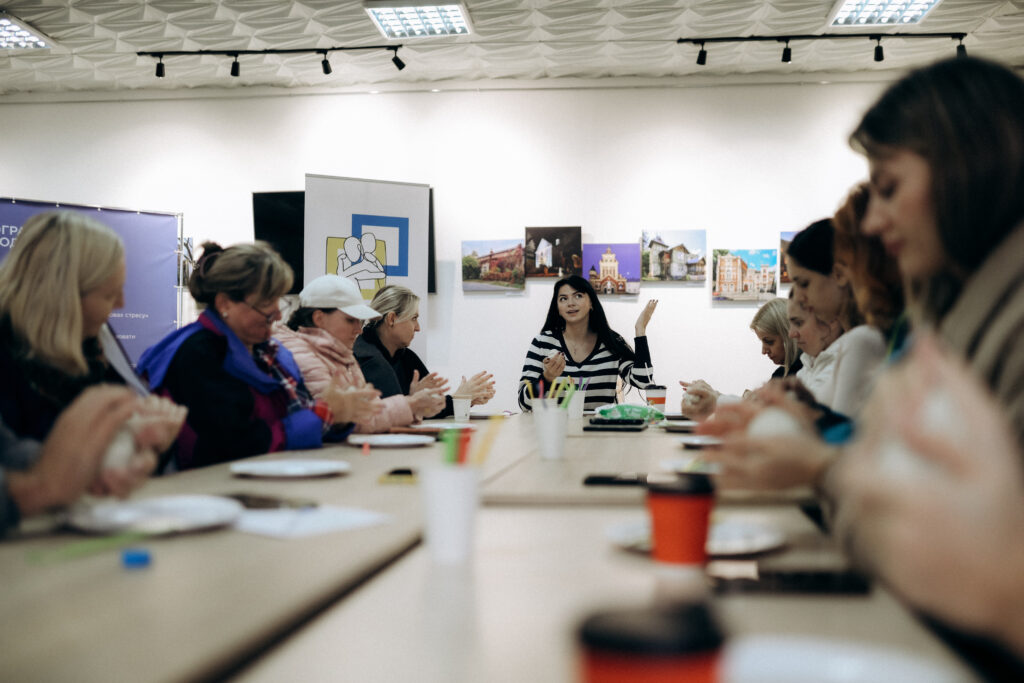
Many people tell us they’ve never had access to mental health support before, or that they were hesitant to seek help until they learned about our services.
One service that’s been especially well-received is our growth groups that provide a safe space for people to share experiences and coping strategies with others who truly understand their situation. We’ve seen remarkable bonds form within these groups, creating support networks that extend beyond our formal sessions.
3. Could you share a memorable success story or experience from the RZT project that highlights its impact on individuals or families?
One of the many stories that struck me is that of an eight-year-old Mykyta from Mariupol. After escaping the besieged city, we discovered he had stopped eating meat because the smell reminded him of burnt bodies he’d witnessed during the war. This heartbreaking detail shows how deeply conflict affects children, creating fears that persist long after the immediate danger has passed.
Our psychologists worked closely with Mykyta and his family, helping them process their trauma and rediscover a sense of normalcy. His journey emphasizes the critical need for specialized mental health support for war-affected children. Mykyta’s progress reminds us that with the right care, even the deepest wounds can heal, allowing children to reclaim their childhoods and look towards a brighter future.
4. What challenges has RZT faced in delivering mental health support, and how have you worked to overcome them?
One of our most pressing challenges has been addressing the mental health needs of a country still at war, with an estimated 1.3 million veterans and projections of 4-6 million in the future. To tackle this, we’ve developed specialized programs for veterans and their families, focusing on preventing secondary traumatization and preparing society for their reintegration.
Another significant challenge is the sheer scale of need versus our resources. To tackle this, we’ve focused on a train-the-trainer model, where we work with social workers, teachers, medical professionals and community leaders, equipping them to provide ongoing support in their areas. This approach not only increases our capacity but also ensures culturally sensitive care tailored to the Ukrainian context.
The ongoing nature of the conflict poses unique challenges for treatment approaches. We’ve also had to be innovative by adapting evidence-based practices to the unique context of wartime Ukraine. This has involved developing shorter-term intervention models and integrating traditional Ukrainian cultural practices into our therapeutic approaches to make them more resonant and effective for our clients.
Additionally, we are actively working to combat the stigma surrounding mental health care by promoting awareness and offering free services that encourage individuals to seek help.
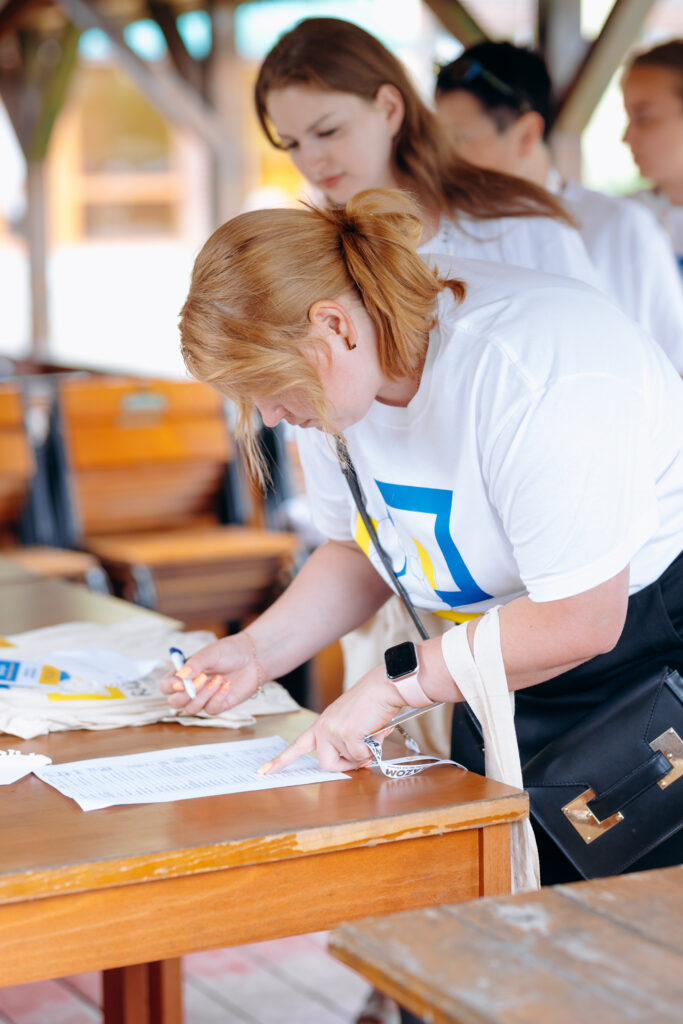
5. October 10th is Mental Health Day, what message do you want to convey to the community regarding the importance of mental health support for those affected by war in Ukraine?
On this Mental Health Day, I want to remind everyone that it’s absolutely okay not to be okay, especially during these challenging times. Prioritizing mental health isn’t a luxury—it’s essential for both individual and national resilience. If you or someone you know is struggling, please remember that seeking help is a sign of strength, not weakness.
The war has left deep scars on many hearts, but healing from trauma is possible. Reaching out for support is a vital step in the recovery process. For those not directly affected by the conflict, I urge you to show empathy, patience, and support for those who are struggling.
To the international community, I want to emphasize that the mental health impacts of this war will extend far beyond the physical conflict. Supporting mental health initiatives must be a key component of any long-term recovery and development plans for Ukraine.
Despite the immense challenges, we’ve witnessed incredible resilience and growth among the individuals and communities we work with. This gives me hope. By supporting one another and prioritizing mental health, I believe Ukrainians can not only recover from this trauma but emerge stronger and more united than ever before.
To learn more about Razom z Toboyu and support its mission, visit https://razomztoboyu.org/
The project is implemented by Razom for Ukraine, Americares, Direct Relief and GlobalGiving.
